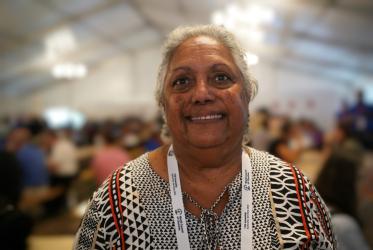Displaying 41 - 60 of 79
08 September 2022
Promoting human dignity through art
06 September 2022
Indigenous women struggle for identity in Asia and beyond
05 September 2022
Women with disabilities want to belong in churches
31 August 2022
Called to Transformation - Ecumenical Diakonia
09 June 2022


















